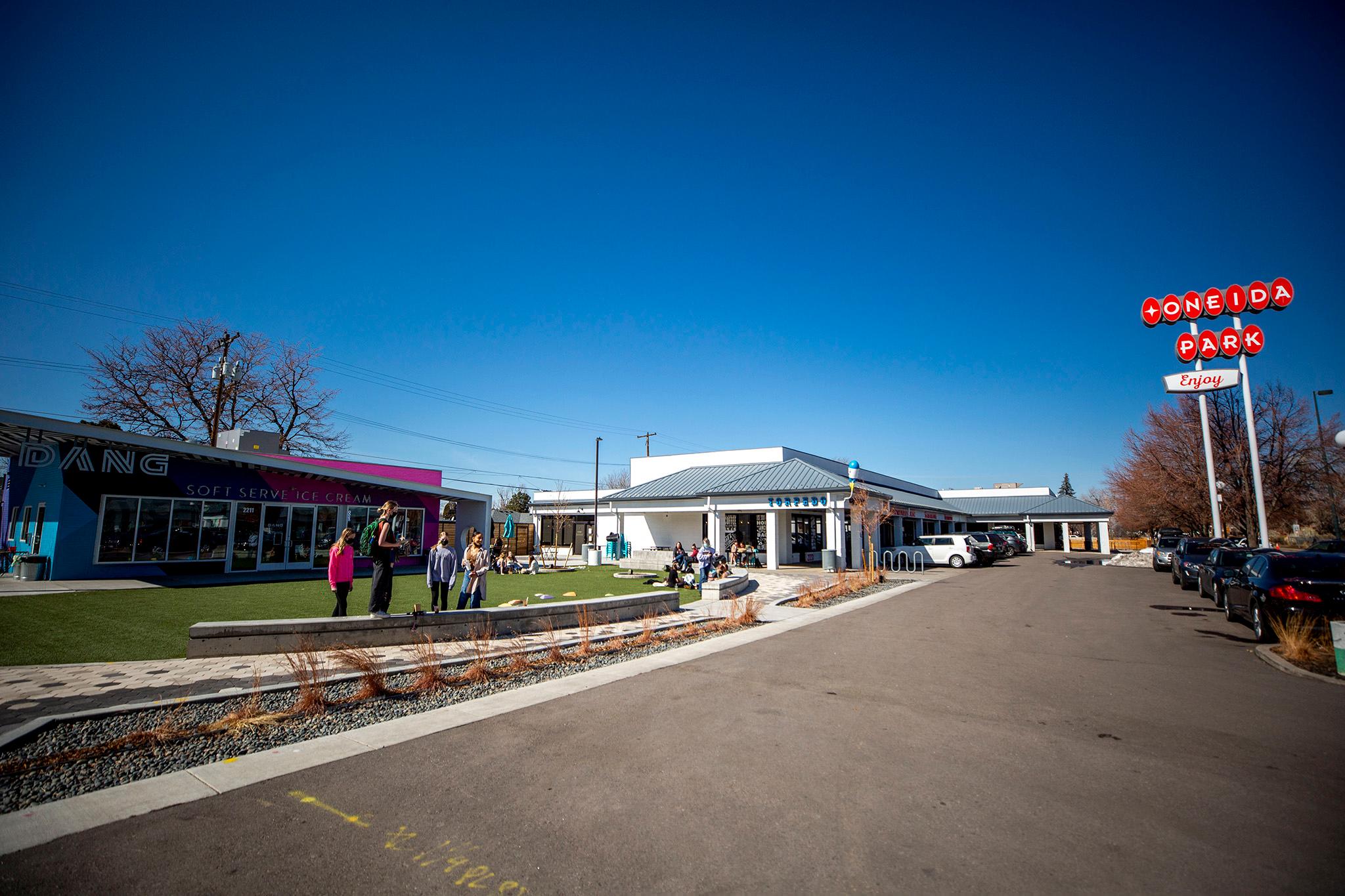The strip mall that takes up most of Oneida Street's 2200 block was constructed in the 1940s but was revamped over the last few years as investors sought to revitalize retail in Park Hill. The area still has some old-school charm. Above the businesses looms a sign that spells out "Oneida Park" in retro ovals; cursive lettering tells customers to "enjoy." Most buildings are painted a simple white. A couple of goats live in a yard to the north, just across 23rd Avenue.
The block is usually hopping on warm afternoons, especially since students from the nearby Denver School of the Arts have started learning in classrooms again. They eat ice cream on the lawn and buzz around the locally owned coffee shop as adults wait for lunch or dinner at the Thai or Philly cheesesteak joints next door. Business is ramping up on the block, and none of the establishments closed during the pandemic's toughest months.
We interviewed ten of the 13 business owners here as part of a larger look into how people who make their livelihoods in Denver are doing. All ten said they were feeling optimistic about the future, and many attributed their survival to a cohesive business community and supportive neighborhood.
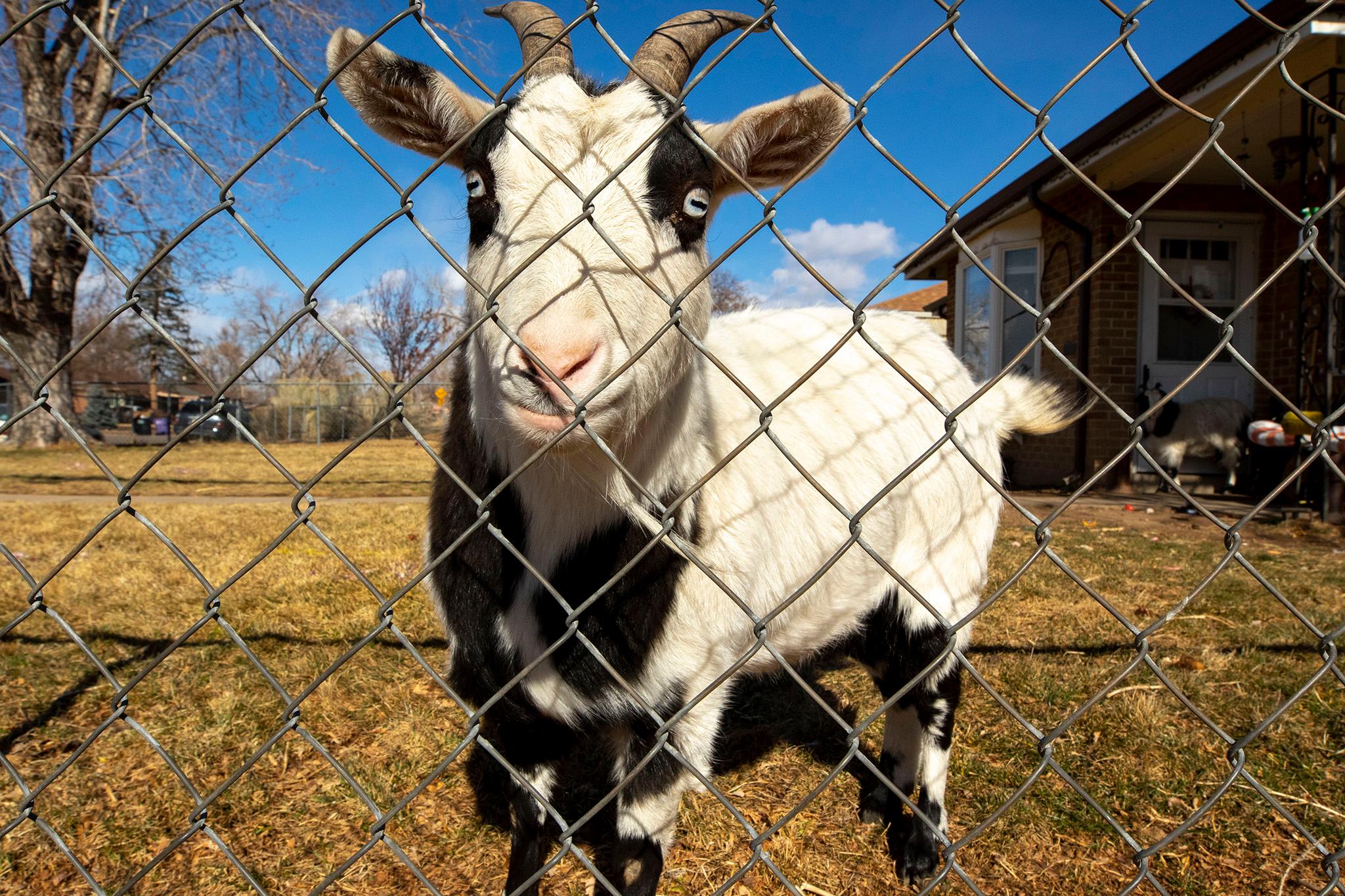
David Lopez, who runs the only auto shop on the block, said word of mouth got him through 2020.
ATR Automotive didn't qualify for any emergency COVID support, he told us, but the repair operation never ran out of work to do. He's been in business for about two and a half years, since he and his team jumped ship from jobs at a local dealership and tried to make their own way.
Lopez said he spent some cash on advertising to gin up new customers in 2020. He thought it might help during the weirdness of the pandemic.
"It didn't at all," he told us. "In this neighborhood, everything's been word of mouth."
This was a common theme in our conversations with business owners. Be it nearby customers who wanted to support local enterprises or owners helping other owners figure out how to apply for federal assistance, there's a palpable sense of connectivity in southeast Park Hill.
Six out of the ten businesses we surveyed got some form of pandemic support, mostly through federal programs. One more, Oneida Liquors, got a regular Small Business Administration loan after its owner, Raju Gautam, bought the place last June. But only three of the ten business owners told us they got a break from their landlord in 2020, making it all the more crucial that they earned support in other ways.
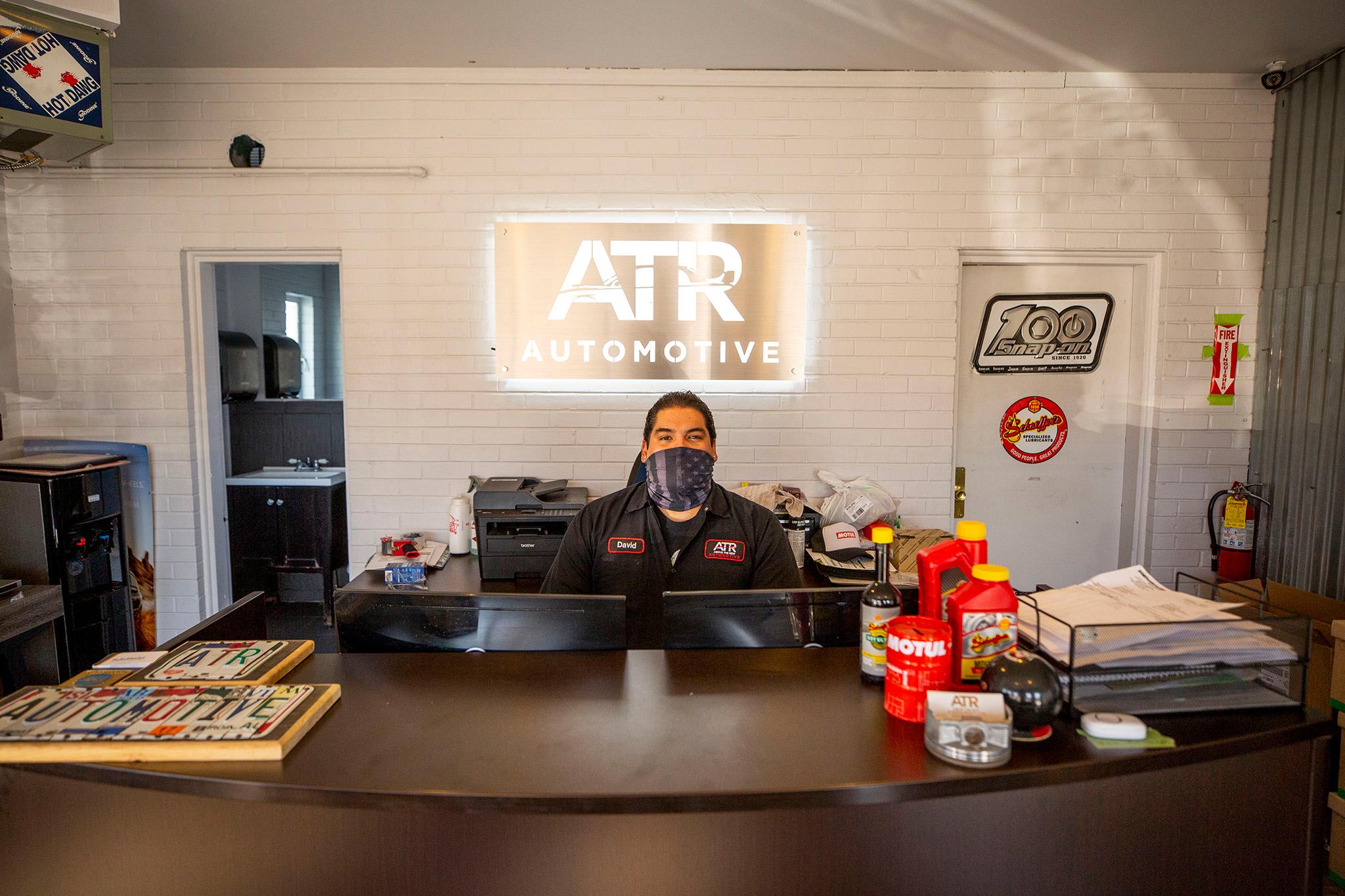
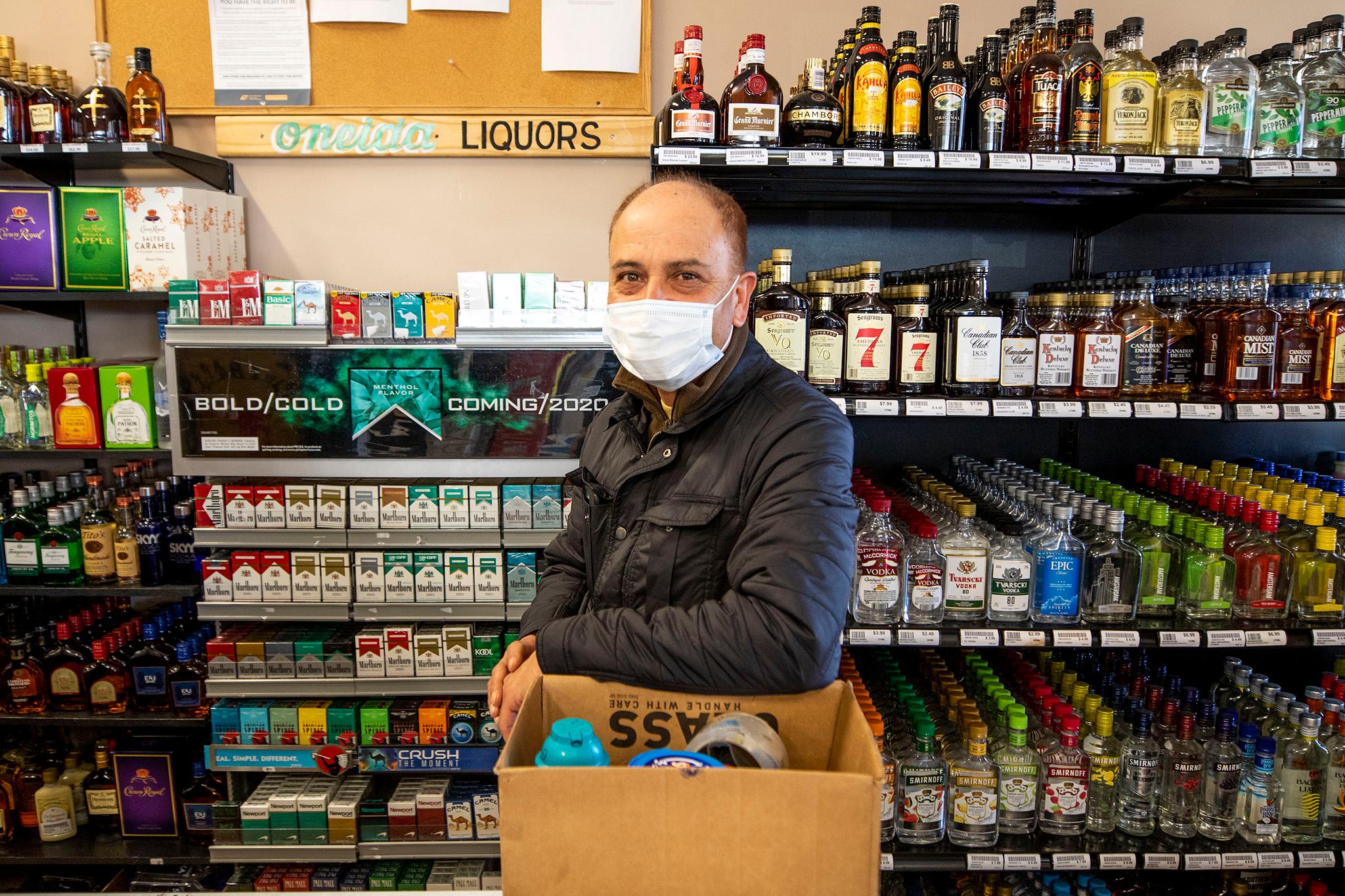
Justin Herd, owner of The Local Butcher shop next to ATR, said his business gained significant traction after restaurants closed down. More people were cooking at home, and it didn't hurt that the local King Soopers ran out of meat as toilet paper and other staples disappeared from its shelves. Like Lopez, Herd said a lot of his new customers over the last year arrived via referral. Others found their way to the shop through its online ordering system, which was up and running before COVID arrived.
Herd's other location, in RiNo's Central Market, did not fare so well. The Larimer Street Local Butcher usually relies on foot traffic, not necessarily repeat customers, who evaporated when things shut down.
"We have kept our head above water because of our retail presence," he told us.
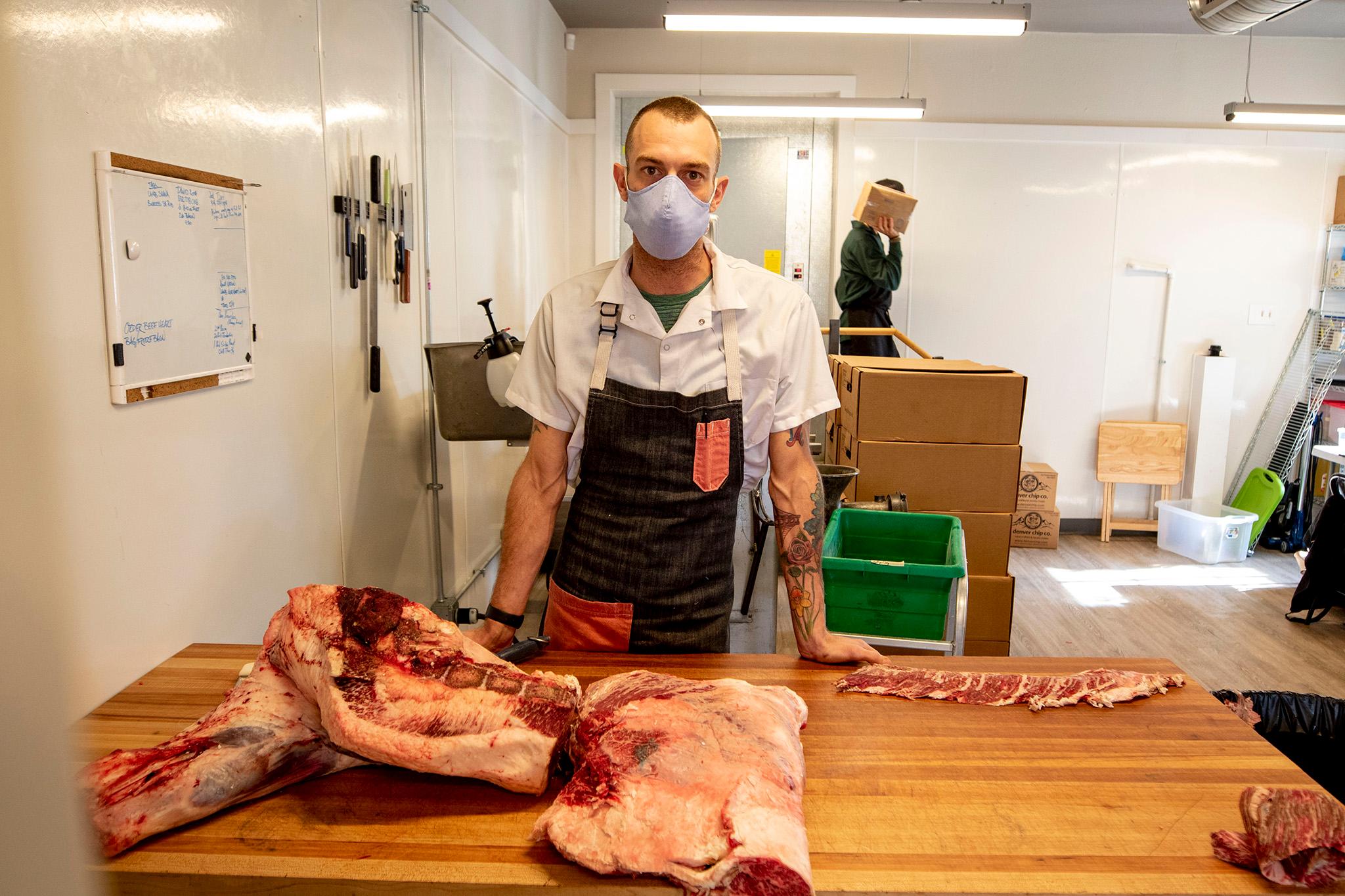
Across the street, Torpedo Coffee owner Kyle Wells had a similar story. He suspects his revenue dropped about 20 percent on Oneida. But his second business, a coffee shop that moved into a spot by RTD's Alameda Station in 2019, faltered as much as 80 percent. Close Quarters, his aptly named new location, had a less of a place in this pandemic. Like the RiNo butcher, it relied heavily on passersby.
Wells said he has a "huge appreciation" for the community surrounding him in Park Hill, especially over the last 12 months.
The businesses on Oneida don't just share a loyal neighborhood. They share a pretty tight network, too.
Zen Den Pet Spa owners Wendy Miner and Lucinda Young also had plenty of work to do in 2020. A lot of dogs found new adopted homes when more people started working from home, and the spa's spot next to the Park Hill Vet was primed for new customers.
Young said the business owners here are in regular contact. Many of them opened their doors around the same time, just after the Oneida Park renovations finished, which created some shared bonds.
"We all have pretty good communication, see each other pretty frequently," she said.
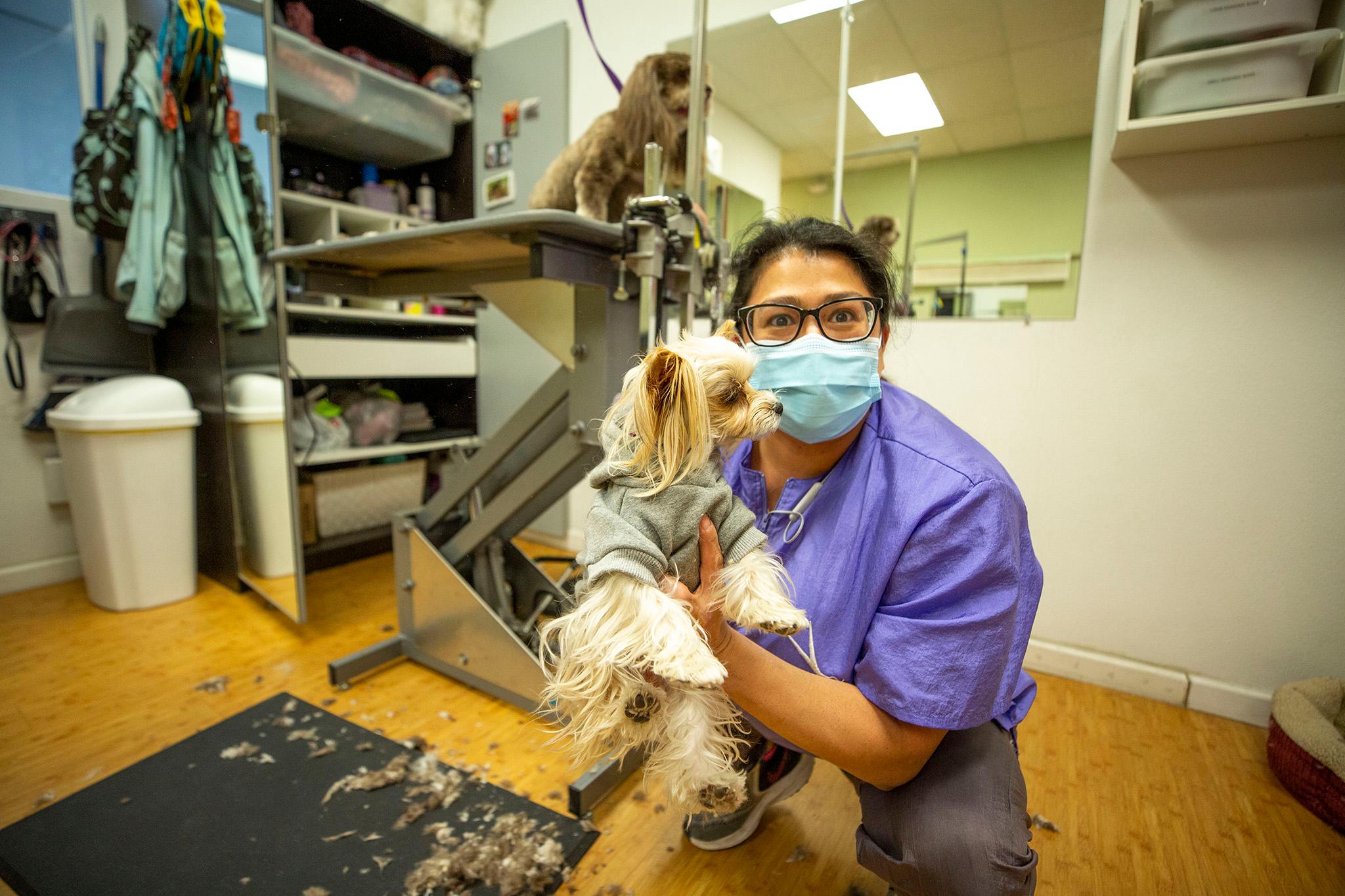
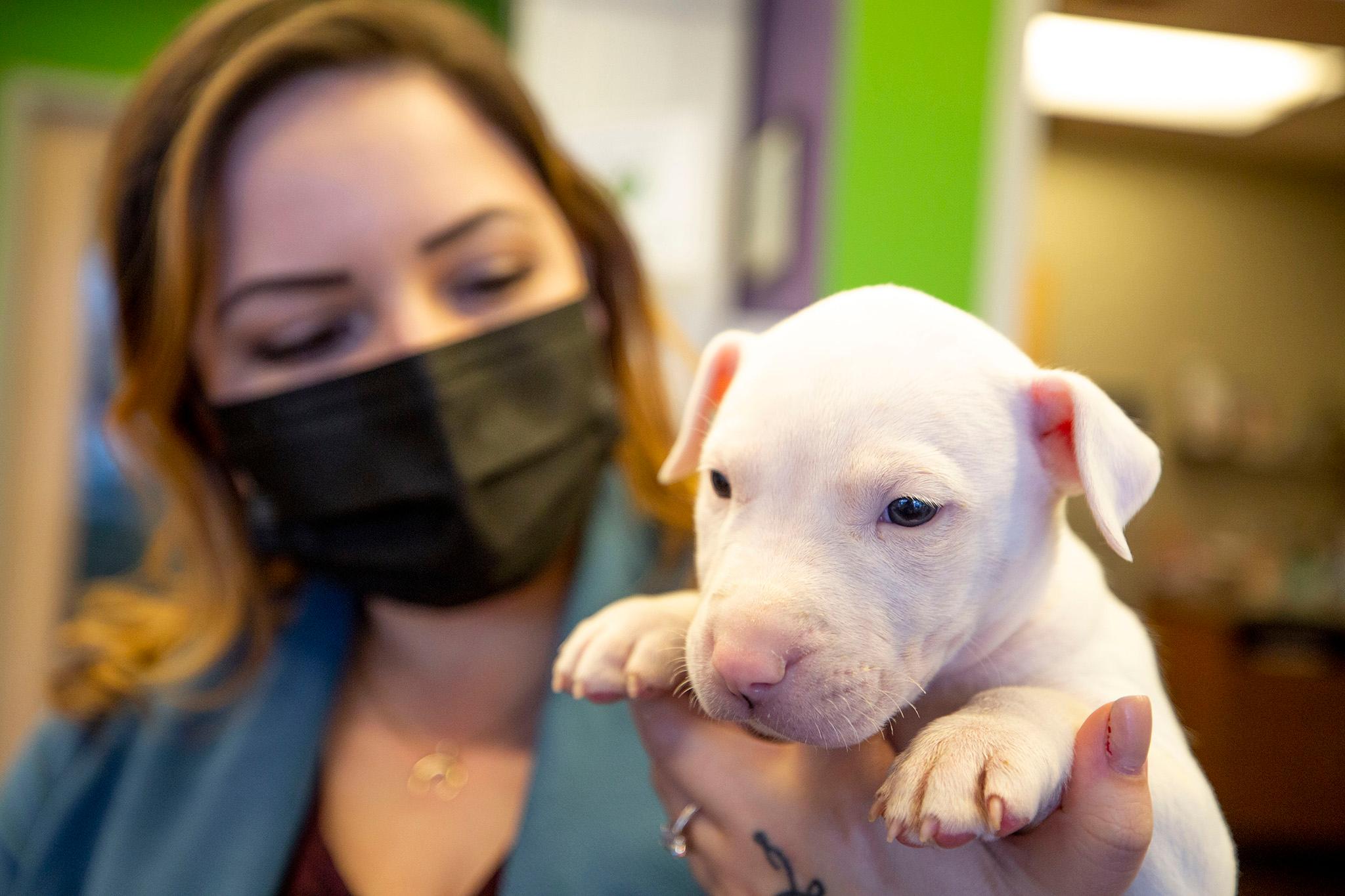
She suspects those connections helped create resilience here. Owners swapped stories about how they were getting by; they knew they were all going through the same things at the same time.
"Just knowing the owners' personality and their backstory and what they've been through as business owners, I think, kind of helps build that community," she said. "We have a pretty good email chain."
And though Zen Den was one of the seven that didn't get any breaks on real estate costs last year, Young said her landlord did check in to make sure she and her neighbors were doing OK.
Kylie Nichols, who owns the Beauty Bee Salon across the street, said she's been grateful for the block's small-town vibe.
"It's a cozy good feeling," she said.
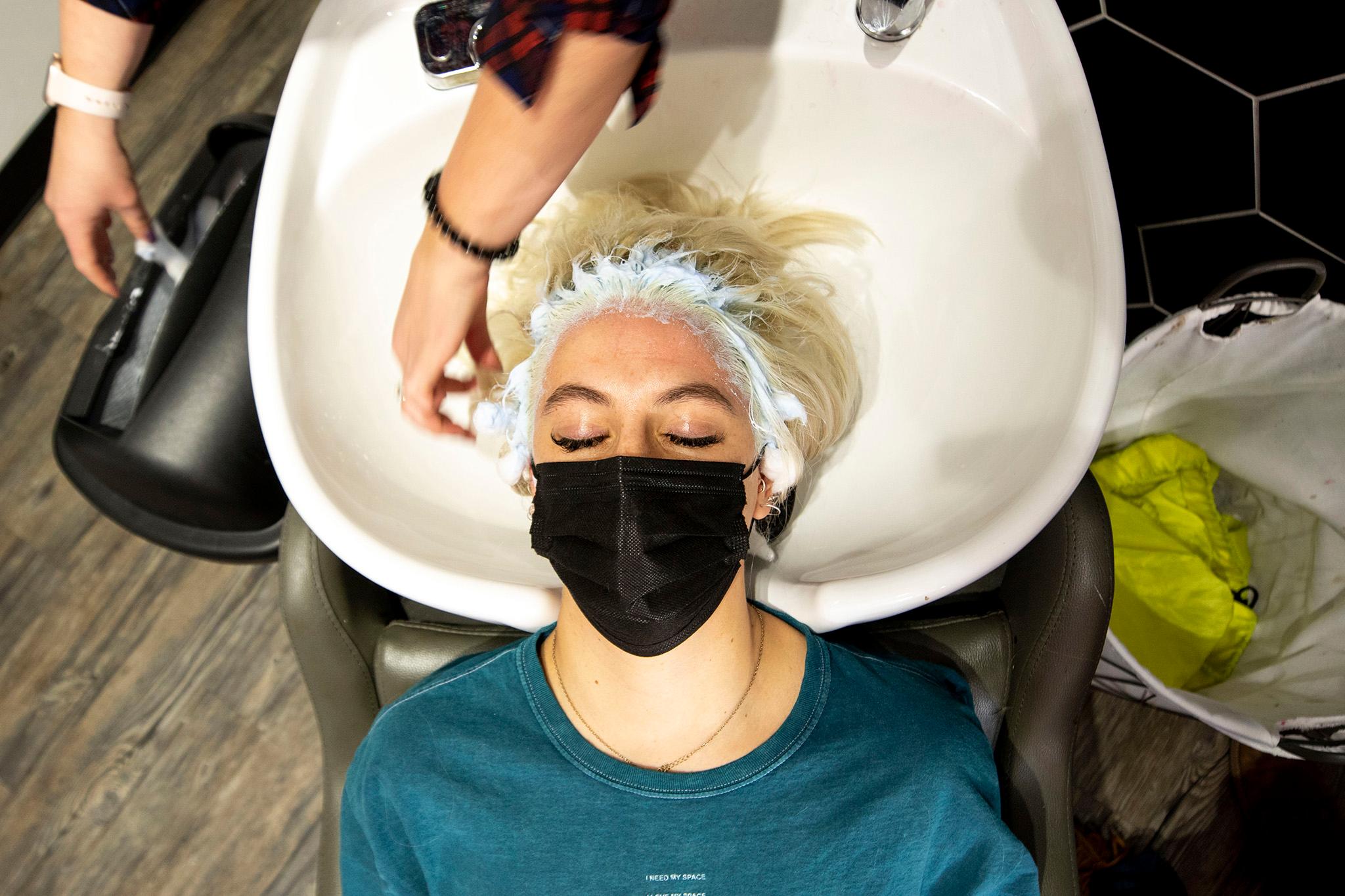
Nichols had trouble navigating the worst of the pandemic. Beauty Bee was closed for two months, and she wasn't able to secure a federal Paycheck Protection Program loan, though she tried to apply.
"It's like another job," she said of looking for aid. "It's been a disaster."
But Nichols, like all nine of her neighbors who spoke with us, said brighter days are ahead. She counts herself "lucky" to have made it this far.

